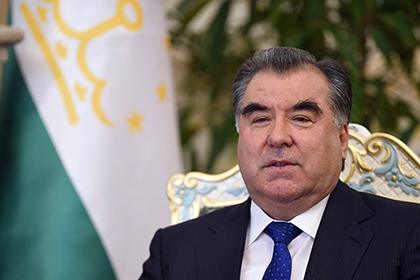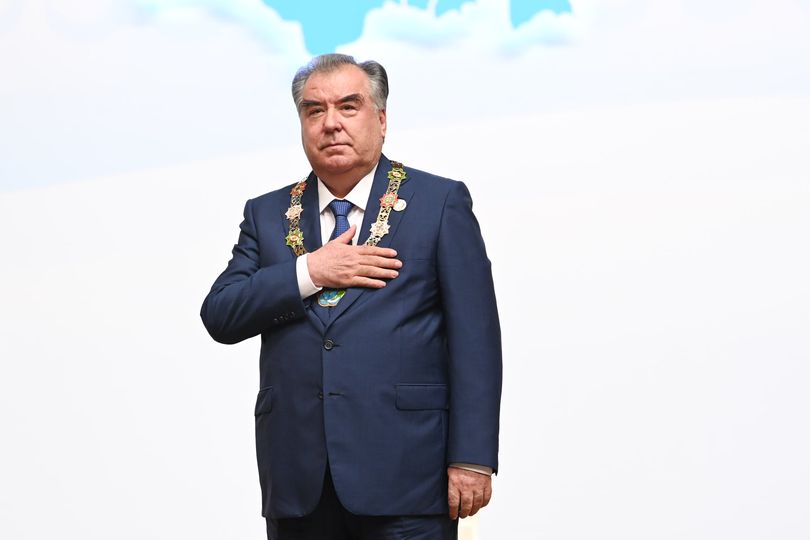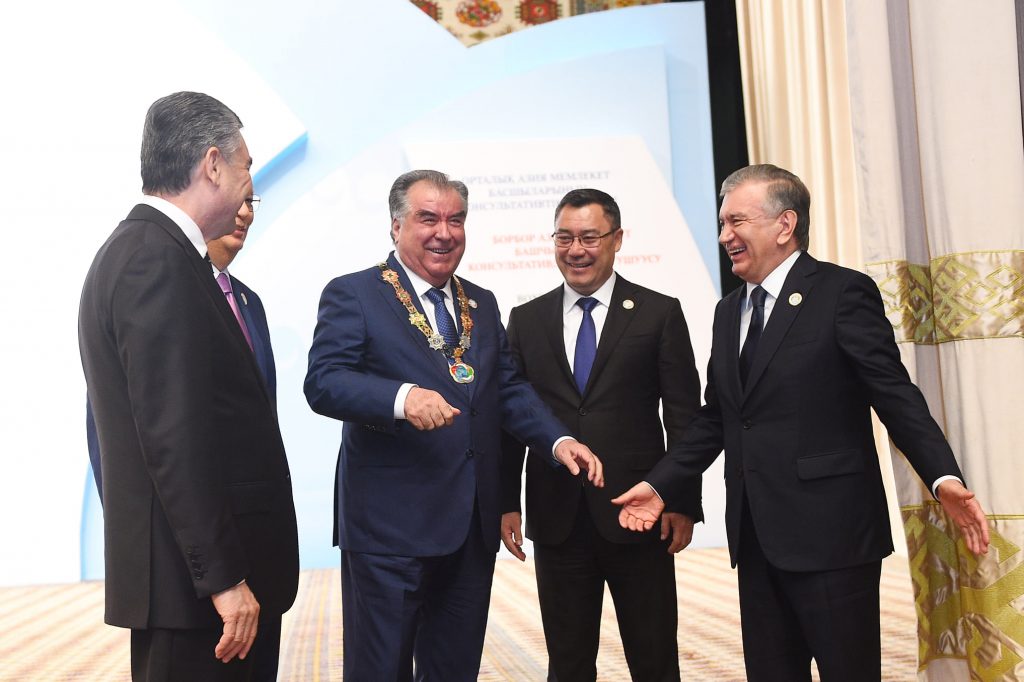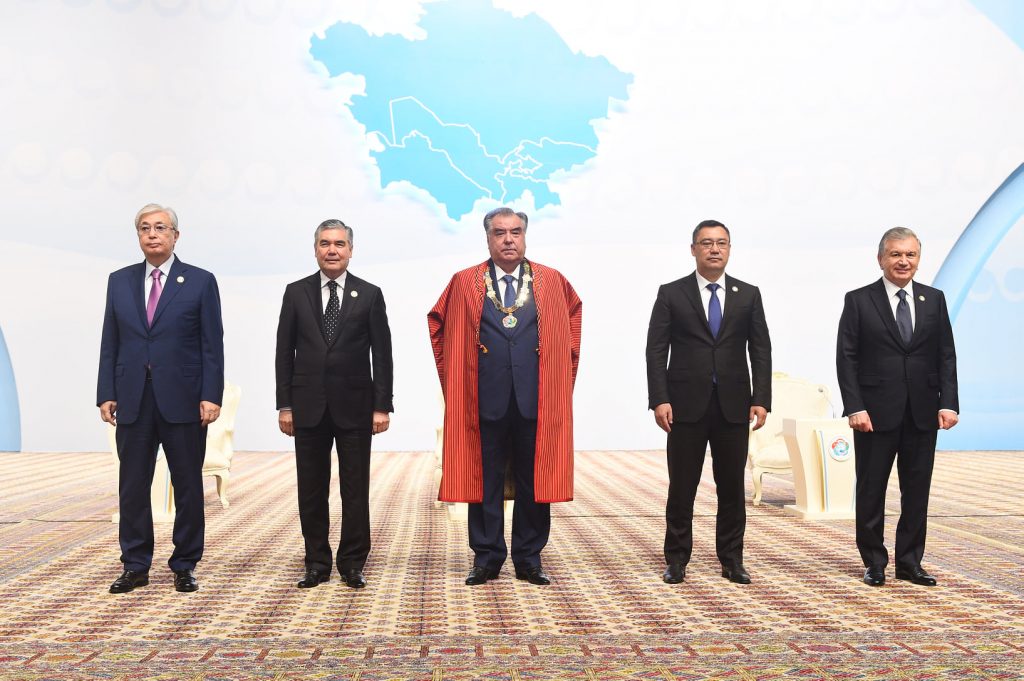 This year the President of the Republic of Tajikistan Emomali Rahmon was awarded the Mark of Honor of the Heads of States of Central Asia by the President of Turkmenistan for his outstanding merits in the development of friendship, good-neighborliness, mutual understanding, cooperation between the states of Central Asia, maintaining peace and security in the region, and promoting common interests and initiatives of the countries of the region in the international arena. In addition, since gaining independence, leading politicians have recognized the achievements of this political figure and have awarded him the UN Peace Prize in the field of global security and international peace for his services in 2007. Gold Medal of the International Federation for Peace and Reconciliation, which is the highest award of the International Federation for Peace and Reconciliation (Kyrgyzstan) on August 4, 2004 «for the sake of peace and mutual understanding.» «Leader of the 21st Century» -the award of the NGO of the Council of Europe on International Relations in the fight against corruption, ensuring the observance and protection of civil rights and freedoms, freedom of the press was presented to President Rahmon on 18 August 2011. His comprehensive have been in the center of special attention of researchers, political scientists, philosophers and sociologists. The post-Soviet history of Tajikistan clearly shows that the settlement of difficult and sensitive issues of the transition period and the following years is closely linked with the name, position and activities of Emomali Rahmon. It is during this period that his qualities as a leader were revealed. Two factors are of special importance to describe the essence of his leadership: status and morality. The status factor makes it possible to understand the powers of the head of state based on his authority within the framework of his constitutional responsibility. The second factor is the moral responsibility of the Tajik Leader to society for the protection of stability, security, and progress of the state. From the point of view of status, President Rahmon is recognized as the highest comprehensive state body of public administration and as a decision-maker who determines the methods and aspects of the activities of all structures and organizations. At the same time, the official position of the President is always characterized by such personal characteristics as exceptional courage in making non-standard political decisions, honesty, openness, reliability in conversations and meetings with the people, purposefulness, practicality, and confidence in the future. His effective strategic behavior has become a source of fundamental institutional change, which has allowed the society to maintain its stability, move towards the set goals, and solidify Tajikistan’s position as a sovereign state. On the other hand, the strategy of cooperation between the head of state and society is based on the mutual compatibility of interests. It should be noted that the President of Tajikistan was able to replace the old Soviet institutions with modern ones. The role of the President in this process is commendable, as it has provided an opportunity for the sustainable development of Tajikistan. The power in the person of the Leader of the Nation is perceived as his ability to influence the people and decision-making. In this case, the government is strengthened by such social and psychological phenomena as influence and confidence, which define the Tajik Leader in relation to state structures and political and governmental relations. Throughout his political career, Emomali Rahmon has enjoyed high prestige, which has allowed him and society to move forward together, because it is important for political leaders and statesmen to have the ability to express the views of the people and the political communication that shapes the consent of the people.
This year the President of the Republic of Tajikistan Emomali Rahmon was awarded the Mark of Honor of the Heads of States of Central Asia by the President of Turkmenistan for his outstanding merits in the development of friendship, good-neighborliness, mutual understanding, cooperation between the states of Central Asia, maintaining peace and security in the region, and promoting common interests and initiatives of the countries of the region in the international arena. In addition, since gaining independence, leading politicians have recognized the achievements of this political figure and have awarded him the UN Peace Prize in the field of global security and international peace for his services in 2007. Gold Medal of the International Federation for Peace and Reconciliation, which is the highest award of the International Federation for Peace and Reconciliation (Kyrgyzstan) on August 4, 2004 «for the sake of peace and mutual understanding.» «Leader of the 21st Century» -the award of the NGO of the Council of Europe on International Relations in the fight against corruption, ensuring the observance and protection of civil rights and freedoms, freedom of the press was presented to President Rahmon on 18 August 2011. His comprehensive have been in the center of special attention of researchers, political scientists, philosophers and sociologists. The post-Soviet history of Tajikistan clearly shows that the settlement of difficult and sensitive issues of the transition period and the following years is closely linked with the name, position and activities of Emomali Rahmon. It is during this period that his qualities as a leader were revealed. Two factors are of special importance to describe the essence of his leadership: status and morality. The status factor makes it possible to understand the powers of the head of state based on his authority within the framework of his constitutional responsibility. The second factor is the moral responsibility of the Tajik Leader to society for the protection of stability, security, and progress of the state. From the point of view of status, President Rahmon is recognized as the highest comprehensive state body of public administration and as a decision-maker who determines the methods and aspects of the activities of all structures and organizations. At the same time, the official position of the President is always characterized by such personal characteristics as exceptional courage in making non-standard political decisions, honesty, openness, reliability in conversations and meetings with the people, purposefulness, practicality, and confidence in the future. His effective strategic behavior has become a source of fundamental institutional change, which has allowed the society to maintain its stability, move towards the set goals, and solidify Tajikistan’s position as a sovereign state. On the other hand, the strategy of cooperation between the head of state and society is based on the mutual compatibility of interests. It should be noted that the President of Tajikistan was able to replace the old Soviet institutions with modern ones. The role of the President in this process is commendable, as it has provided an opportunity for the sustainable development of Tajikistan. The power in the person of the Leader of the Nation is perceived as his ability to influence the people and decision-making. In this case, the government is strengthened by such social and psychological phenomena as influence and confidence, which define the Tajik Leader in relation to state structures and political and governmental relations. Throughout his political career, Emomali Rahmon has enjoyed high prestige, which has allowed him and society to move forward together, because it is important for political leaders and statesmen to have the ability to express the views of the people and the political communication that shapes the consent of the people.
Confidence gives the President of Tajikistan an attractive and influential character that, without arguments, realistically understands the situation, makes the necessary decisions, and implements them. That is, the assessments of the President of Tajikistan are accepted by the public. This is the unique feature of the political leadership of the President of the country. His authority is effective even in cases where it is difficult to believe. This is clearly evident in complex situations. For example, the negative impact of the global economic crisis on our society has clearly demonstrated and confirmed a high level of confidence in the Leader of the Nation. The generosity of the Leader of the Nation is the result of his unparalleled ability, which is recognized and accepted by the majority of the population of the country. The President of Tajikistan, as an influential political figure, conducts his relations with the public on the basis of trust, openness, and benevolence.
Farzona Khudoidodova — Deputy Head of Directorate for
Analyses of Social Issues, Center for Strategic research
under The President of the Republic of Tajikistan







